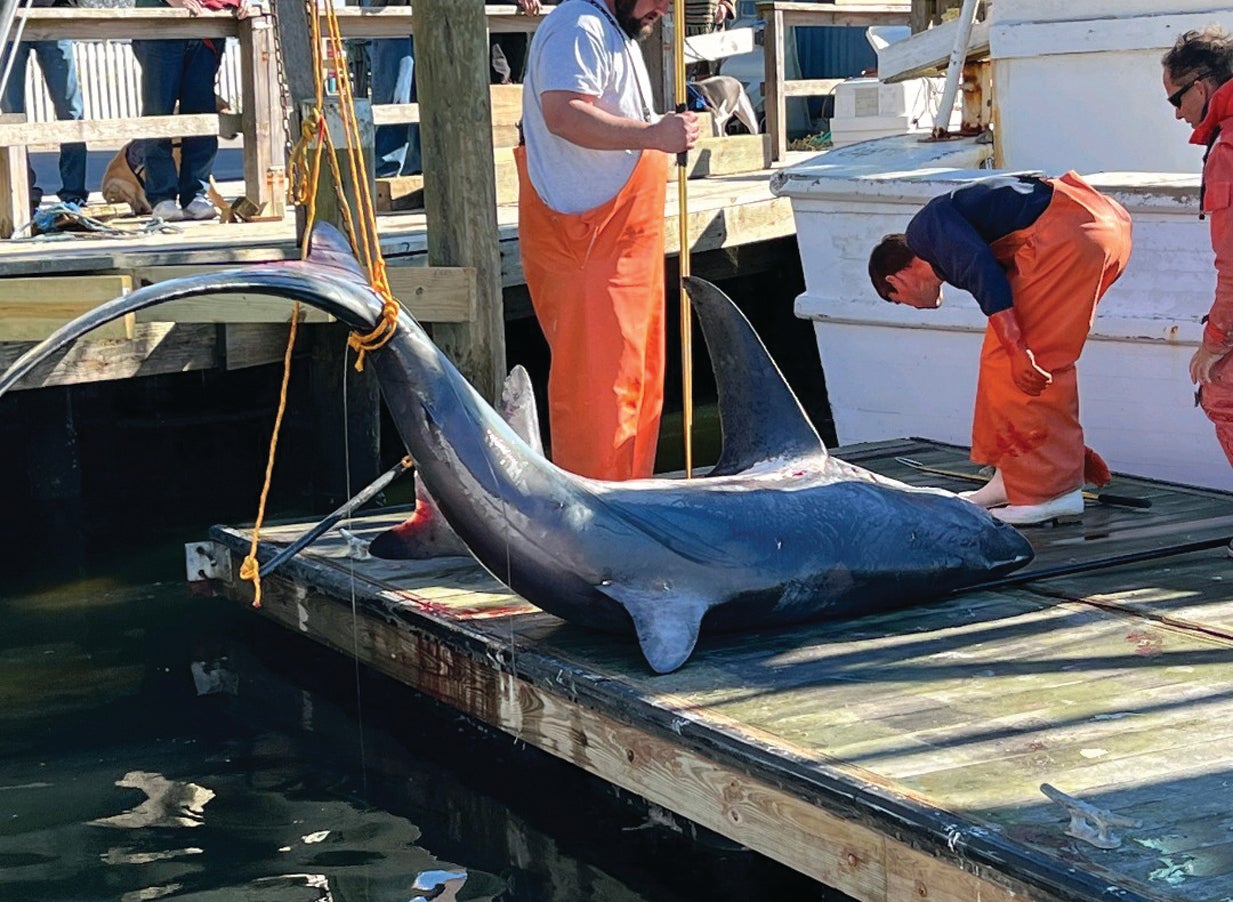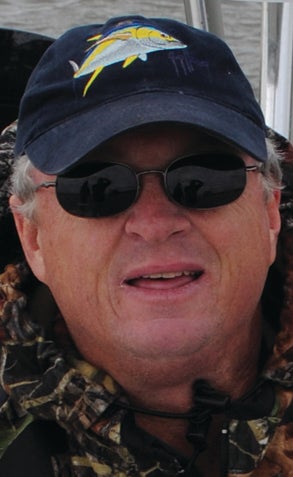DAN KIBLER COLUMN: Hunters for the Hungry
Published 10:42 am Tuesday, February 14, 2023

- A new state-record common thresher was caught by Steven Viltoft. It weighed 589 pounds, 1 ounce. (Contributed by NC Division of Marine Fisheries)
|
Getting your Trinity Audio player ready...
|
There is often a sense among deer hunters that the number of animals they need to kill every season to keep the herd on their hunting property well managed doesn’t always match up with their amount of venison they need for their family and friends.

Dan Kibler
A decade ago, I was coming to the end of a 15-year hunt on a 640-acre property in middle Georgia that was literally crawling with deer. The four or five of us regularly hunting the place needed to take close to a dozen deer every season to keep the herd in a good state of health. But we only needed the venison from about five or six.
Our solution in Georgia was something called “Project Venison,” run by the people at Buckmaster (then a popular magazine, TV show and conservation organization). Annual banquets by local Buckmasters chapters raised money that was given to local deer processors to take bucks and does that hunters didn’t want, grind them into burger and donate it to food pantries and other organizations to provide protein for the less fortunate.
Boy, have I wished for a Project Venison in Piedmont North Carolina the past few years. My son and I, we could probably get by with one deer between us, but the property we lease in the northern reaches of Forsyth County could probably use two or three whitetails taken off it every year.
I may get my wish, and soon.
This past Saturday night, Dr. Liz Rutledge, a wildlife biologist with the N.C. Wildlife Federation, visited a pot-luck, wild-game dinner put on by the Yadkin Valley Wildlife Federation, a local conservation group. She told how her organization controls another group called North Carolina Hunters for the Hungry, which arranges for the donation and processing of more than 1,000 deer a year that wind up at food banks and food pantries for distribution to those in need.
“We have 18 meat processors we work with,” Rutledge said. “We go into local communities, try to get one or two meat processors who have been inspected by the (NC) Department of Agriculture, who would be interested in our program.
“Each processor is reimbursed $60 per deer, or $50 if the deer is already skinned, for processing it into 1- to 2-pound packages of ground venison.”
The NCWF acquires by various methods the funding for that processing. Sometimes, local chapters raise part of the money, the N.C. Wildlife Resources Commission donates some of the funds – every community is a little different.
And Rutledge hopes to partner with the Yadkin Valley Wildlife Federation to crank up North Carolina Hunters for the Hungry in the area that is made up of counties along the Yadkin River in the western Piedmont.
“I hope by next season we will have one or two processors in this area who will accept deer,” she said. “I have identified and called on 25 to 30 processors in the six to seven counties in this area. We are actively trying to get a couple of local processors involved.”
Rutledge has processors scattered around North Carolina. Some of the larger areas with big deer herds and a lot of hunters have more than just one or two processors in the program – up to eight or nine, she said. One of her group’s big success stories has been Gaston County, where between 150 and 200 deer are donated through local processors – paid for largely by a fund-raising banquet that hands a nice check to NCHFH to pay for the processing.
Rutledge said some processors work directly with food pantries and food banks that receive the donations. She said her group will also work to set up a distribution network.
“We serve a lot of families, a lot of single mothers with kids who are looking for a source of protein for their families,” she said. “We’re supplying a great source of protein to folks who need it.”
Rutledge said processors involved in the program often get more than just the extra business from donated deer. She said community groups have paid to have processors’ facilities upgraded to meet Department of Agriculture standards or to provide extra cooler space for processors who’ll need it for the extra deer they’re working on. And, she said, they often get business from many of the same hunters who donate deer; they come back to get other whitetail ground into hamburger, cut into steaks or turned into sausage.
State-record thresher shark boated off Oak Island
North Carolina has another state-record saltwater fish, this one a huge shark caught off Oak Island on Jan. 10.
Steven Viltoft was fishing with Oak Island Fishing Charters when he boated a 589-pound, 1-ounce thresher shark off the Knuckle Buoy. The shark, which measured 90 inches from the nose to the fork in the tail, was 165¾ inches from the tip of the nose to the tip of the tail.
Viltoft’s shark hit a piece of mullet fished on 130-pound test line spooled on a Shimano 80W Tiagra reel paired with a Bazen custom rod. It took two hours to boat the huge fish.
Viltoft’s fish displaced as the state record a 185-pound thresher caught out of Oregon Inlet in 2005.
Limited striper season set for Roanoke River
The N.C. Wildlife Resources Commission has set 2023 seasons for striped bass in the popular Roanoke River Management Area, and it’s a far cry from years past.
The Commission has set April 14-17 and April 22-23 for the harvest of stripers in the Roanoke River and its tributaries – the Chowan, Middle and Eastmost – downstream from Roanoke Rapids Dam in Weldon to the Albemarle Sound.
The daily creel limit is one striped bass, with a minimum size of 18 inches, and a 22- to 27-inch slot in which no fish can be kept.
A 2020 stock assessment indicated that stripers in the Roanoke River and Albemarle Sound were overfish and that overfishing was occurring. The Commission set a harvest quota for 2023 of 12,804 pounds.
Anglers can catch and release striped bass in the rivers throughout the spring. The Commission recommends anglers use a single, barbless hook or lures with a single barbless hook. That is a requirement when fishing from the US 258 bridge near Scotland Neck to Weldon between April 1 and June 30.
Dan Kibler has covered the outdoors since 1985 as outdoors editor of the Winston-Salem Journal and later as managing editor of Carolina Sportsman until his retirement in 2021.


